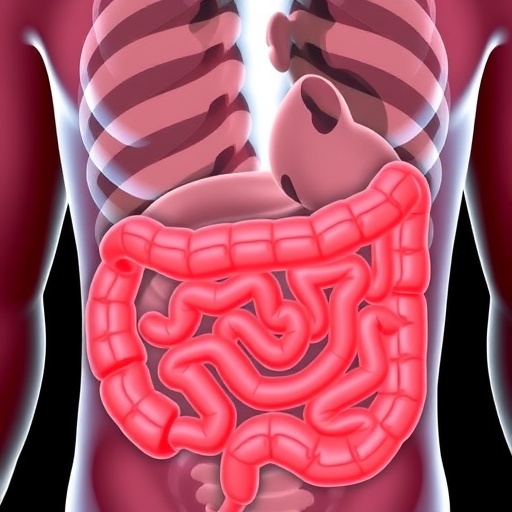In an era where personalized medicine is becoming the cornerstone of effective patient care, a groundbreaking study spearheaded by researchers Y. Tao, L.F. Wang, and P. Li has emerged, providing profound insights into the intricate world of Inflammatory Bowel Disease (IBD). This chronic condition, which significantly impacts the lives of millions globally, has long posed challenges in diagnosis and management due to its heterogeneous nature. The researchers have developed a dynamic biomarker atlas aimed at revolutionizing the way clinicians stratify and manage IBD, paving the way for tailored therapeutic approaches that are both effective and patient-centric.
At the heart of this research lies the recognition that IBD is not a singular disease but rather a collection of disorders with varying etiologies and presentations. The study meticulously decodes the progression of IBD by examining a plethora of biomolecular markers that reveal critical information regarding disease state, severity, and potential therapeutic responses. By identifying these markers, the authors position their work as a crucial step towards not only understanding IBD better but also embracing a more individualized treatment paradigm.
Utilizing state-of-the-art high-throughput methodologies, the researchers conducted a comprehensive analysis of clinical samples collected from IBD patients at various stages of the disease. Through this extensive data collection, they were able to identify novel biomarkers that correlate with disease progression, offering a dynamic view of the condition’s evolution. The atlas created represents a significant expansion of the existing knowledge base and challenges the traditional one-size-fits-all approach to IBD management.
Moreover, the study emphasizes the importance of longitudinal monitoring in the management of IBD. Recognizing that the disease can ebb and flow, the researchers highlight how continual assessment of biomarkers can help clinicians tailor treatment regimens in real-time. This responsive approach to care could drastically improve outcomes for patients, as therapies can be adjusted based on the most current understanding of an individual’s disease state.
The implications of this study extend beyond mere classification; they offer a tangible framework for the future of IBD treatment. By employing machine learning algorithms alongside biomarker data, the researchers were able to predict patient trajectories more accurately. This predictive capability is not only groundbreaking for clinical practice but also acts as a catalyst for further research into targeted therapies that can address the underlying mechanisms of IBD, rather than simply alleviating symptoms.
Histological analysis formed a pivotal part of this research, as researchers identified specific tissue signatures associated with different disease phenotypes. This granular understanding of the disease at a cellular level enables a more nuanced classification system that can inform treatment decisions. Such revelations underscore the complexity of IBD and the necessity for an adaptable, informed approach to patient management.
The collaborative nature of this research is also noteworthy. By bringing together experts from various fields—including molecular biology, clinical medicine, and bioinformatics—the team has established a multidisciplinary framework that enriches the interpretation of the findings. This collaboration mirrors the growing trend in medical research towards integrated, team-based approaches, which can accelerate the translation of scientific discoveries into clinical applications.
As the team continues to validate and expand their findings, they aim to integrate the biomarker atlas into routine clinical workflows. The potential for clinicians to easily access and interpret these biomarkers could represent a transformative shift in IBD management, ensuring that treatment protocols are not only reactive but predictive and preventive. Such a shift aligns well with the broader trend in healthcare towards personalized and precision medicine, where treatments are increasingly tailored to the individual patient based on specific biological markers.
The urgency of this research cannot be overstated, as IBD cases continue to rise globally, placing immense strain on healthcare systems. Empowering clinicians with tools to make informed decisions based on robust data can lead to improved patient outcomes while reducing healthcare costs associated with trial-and-error approaches to treatment.
Ultimately, this study is not merely a scientific publication; it is a clarion call for a paradigm shift in how we view and manage IBD. The research fosters hope for patients who navigate the challenges of this multifaceted disease, emphasizing that with ongoing innovation and research, personalized treatments are not just a distant aspiration but a forthcoming reality.
As the findings begin to take shape in clinical practices, the potential for improved patient outcomes and quality of life becomes increasingly apparent. This remarkable study exemplifies the essential role that rigorous scientific inquiry plays in molding the future of medicine, particularly in the realm of chronic diseases.
In summary, the ambitious endeavor undertaken by Tao and colleagues marks a pivotal moment in IBD research and treatment. With their dynamic biomarker atlas, they provide not only empirical evidence for the need for personalized disease stratification but also a clear pathway towards achieving it. The research journey does not end here; rather, it serves as an inspiring foundation for further exploration into IBD and the myriad ways we can empower patients with knowledge and tailored therapeutic interventions.
Subject of Research: Inflammatory Bowel Disease (IBD) Progression and Personalized Treatment
Article Title: Decoding IBD progression: a dynamic biomarker atlas for personalized disease stratification
Article References:
Tao, Y., Wang, LF., Li, P. et al. Decoding IBD progression: a dynamic biomarker atlas for personalized disease stratification.
J Transl Med 23, 1076 (2025). https://doi.org/10.1186/s12967-025-07024-x
Image Credits: AI Generated
DOI: 10.1186/s12967-025-07024-x
Keywords: Inflammatory Bowel Disease, Personalized Medicine, Biomarkers, Disease Stratification, Chronic Disease Management, Longitudinal Monitoring, Predictive Analytics, Multidisciplinary Research




